Sangmi Kim
Two-layer retrieval augmented generation framework for low-resource medical question-answering: proof of concept using Reddit data
May 29, 2024



Abstract:Retrieval augmented generation (RAG) provides the capability to constrain generative model outputs, and mitigate the possibility of hallucination, by providing relevant in-context text. The number of tokens a generative large language model (LLM) can incorporate as context is finite, thus limiting the volume of knowledge from which to generate an answer. We propose a two-layer RAG framework for query-focused answer generation and evaluate a proof-of-concept for this framework in the context of query-focused summary generation from social media forums, focusing on emerging drug-related information. The evaluations demonstrate the effectiveness of the two-layer framework in resource constrained settings to enable researchers in obtaining near real-time data from users.
Designing Fair AI for Managing Employees in Organizations: A Review, Critique, and Design Agenda
Feb 20, 2020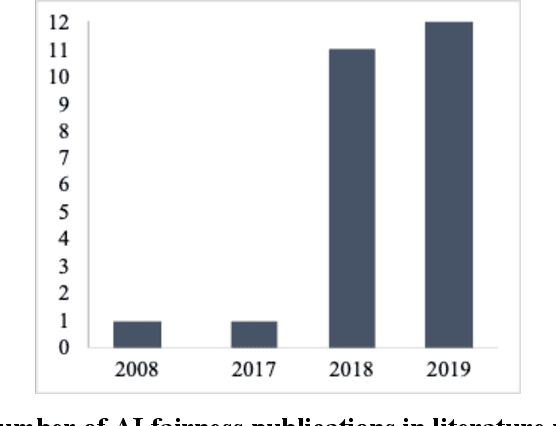
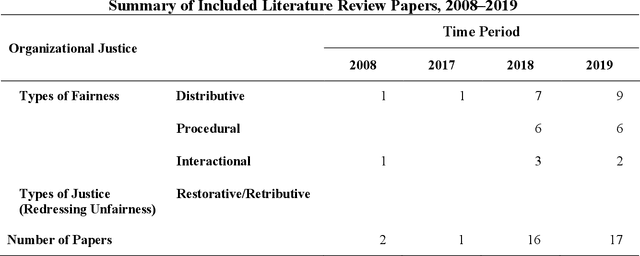
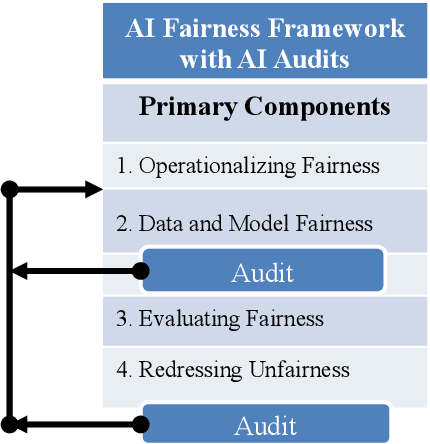
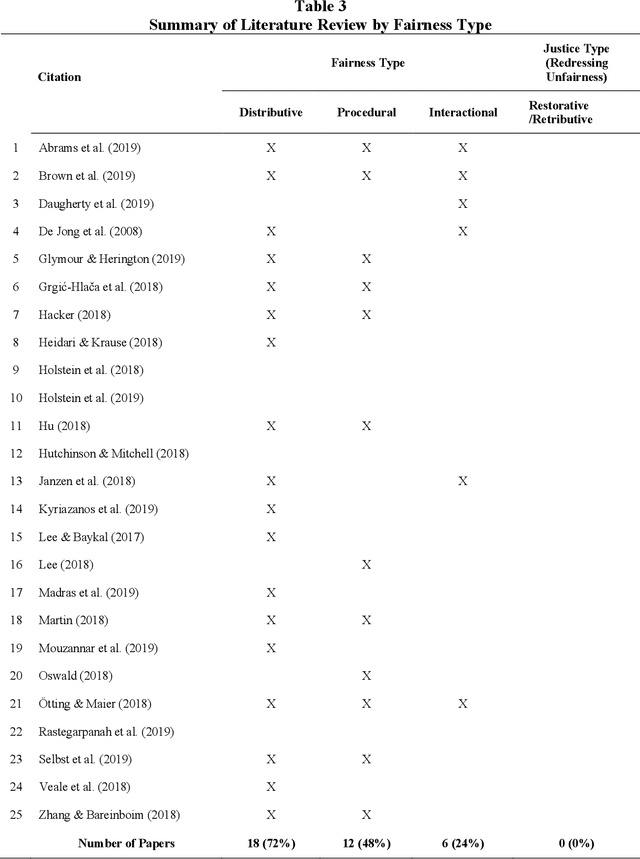
Abstract:Organizations are rapidly deploying artificial intelligence (AI) systems to manage their workers. However, AI has been found at times to be unfair to workers. Unfairness toward workers has been associated with decreased worker effort and increased worker turnover. To avoid such problems, AI systems must be designed to support fairness and redress instances of unfairness. Despite the attention related to AI unfairness, there has not been a theoretical and systematic approach to developing a design agenda. This paper addresses the issue in three ways. First, we introduce the organizational justice theory, three different fairness types (distributive, procedural, interactional), and the frameworks for redressing instances of unfairness (retributive justice, restorative justice). Second, we review the design literature that specifically focuses on issues of AI fairness in organizations. Third, we propose a design agenda for AI fairness in organizations that applies each of the fairness types to organizational scenarios. Then, the paper concludes with implications for future research.
A Review of Personality in Human Robot Interactions
Feb 05, 2020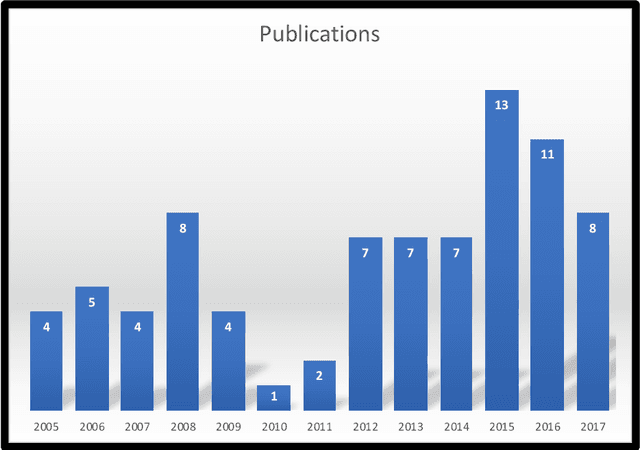
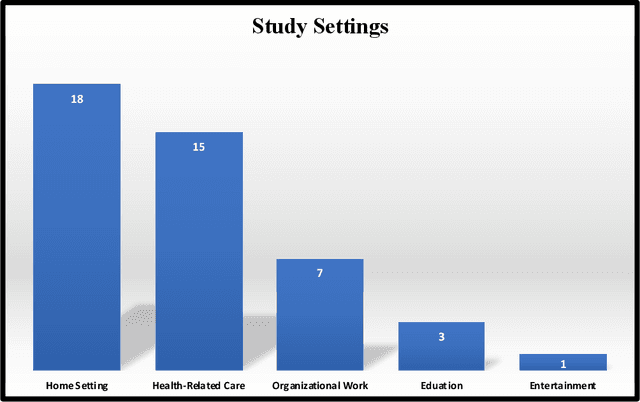
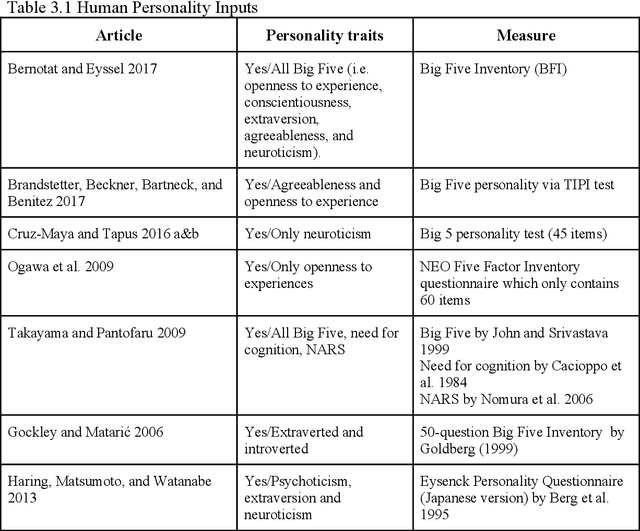
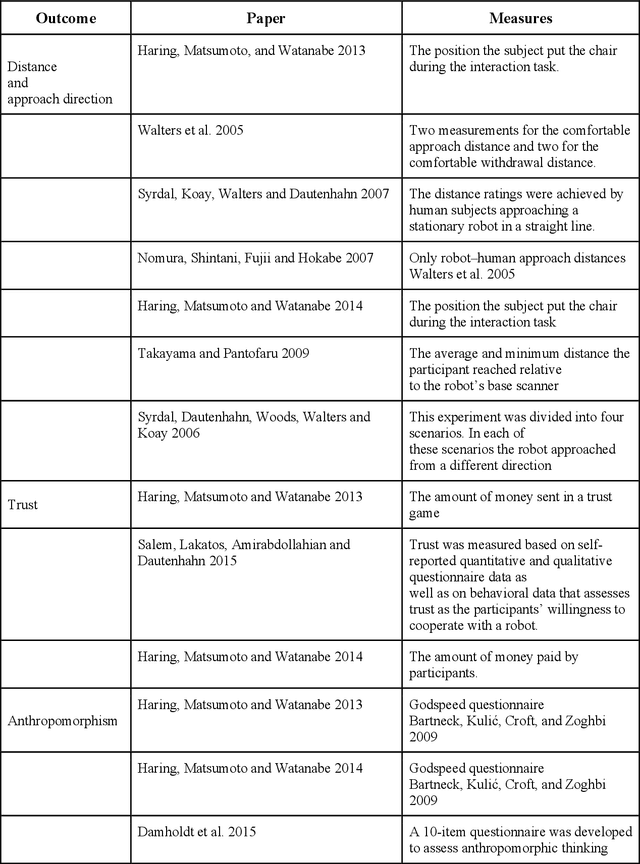
Abstract:Personality has been identified as a vital factor in understanding the quality of human robot interactions. Despite this the research in this area remains fragmented and lacks a coherent framework. This makes it difficult to understand what we know and identify what we do not. As a result our knowledge of personality in human robot interactions has not kept pace with the deployment of robots in organizations or in our broader society. To address this shortcoming, this paper reviews 83 articles and 84 separate studies to assess the current state of human robot personality research. This review: (1) highlights major thematic research areas, (2) identifies gaps in the literature, (3) derives and presents major conclusions from the literature and (4) offers guidance for future research.
 Add to Chrome
Add to Chrome Add to Firefox
Add to Firefox Add to Edge
Add to Edge